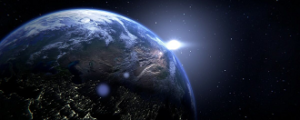
Arquivo para April 24th, 2024
The return to the nations and the absence of the Whole
In a time of hypercommunication, social media makes one feel the absence of the Whole, which Peter Sloterdijk calls the Big: “the form of the big in the industrial world insists on the well-known megalopathic stress in expanded dimensions – but then the people on the street must worry, who previously would have supported a Minister of Foreign Affairs” (Sloterdijk, 1999, p. 61), what he did not imagine was that this would have the opposite reaction: the return of patriotism.
makes one feel the absence of the Whole, which Peter Sloterdijk calls the Big: “the form of the big in the industrial world insists on the well-known megalopathic stress in expanded dimensions – but then the people on the street must worry, who previously would have supported a Minister of Foreign Affairs” (Sloterdijk, 1999, p. 61), what he did not imagine was that this would have the opposite reaction: the return of patriotism.
However, only unexpected forces realized this effect, while today’s society: “suffering bouts of nausea in the face of its political class, at the moment cannot do more than grant a pause for reflection on fundamental questions” (p. 62).
The author notices the lack of “something”, the emphasis is his, but prefers to “interpret it as the spirit of the agrarian age” and the great empires (pg. 60), and in his agnostic vision, “for her came the critical moment with the “death of God” “ (idem), again the emphasis is on the author.
Thus in the absence of an eschatological figure, in a world that rejects the idea of the sacred, the divine and a human-divine God of Christians, “the form of the Great is changed, filiation pathologies of all kinds become epidemic” (pg . 66), not only in politics, but also in religion, everyone believes they have found a “great one” and heretically places him in the place of God, even in religions an imaginary god of wealth, leisure and even lust, however contradictory it may be. as it may seem.
The book from the end of the last millennium, understands the problem right but in the wrong place, under the theme of “conservative revolution” (a new highlight from the author) it is experienced “two or three generations ago in the Catholic resistance movements in central Europe and the south, probably a great intercultural career ahead – under a religious, culturalist, regionalist banner” (pg. 67).
Returns to a correct analysis: “in the Great modern – the quasi-religious state-national identities that since the 19th century have marked political forms of life in Europe and later throughout the world” (idem), remember Nazism and now in several forms of “national” wars.
The modern phenomenon of this Great One, of the great homeland whether in Israel or Russia, in China or the USA, is nothing other than the absence of a Great Greater, the divine one that leads men to break borders, to live with what is different and to understand the need for a new civilization that sees the planet as a Homeland.
For the great religious man, one may ask where God is, but the divine-historical figure of Jesus and his beyond-Abrahamic vision that surpasses that of these conflicting peoples, proclaimed a universal motto: “Whoever has seen Me has seen Him who sent Me ” (John 12:45).

